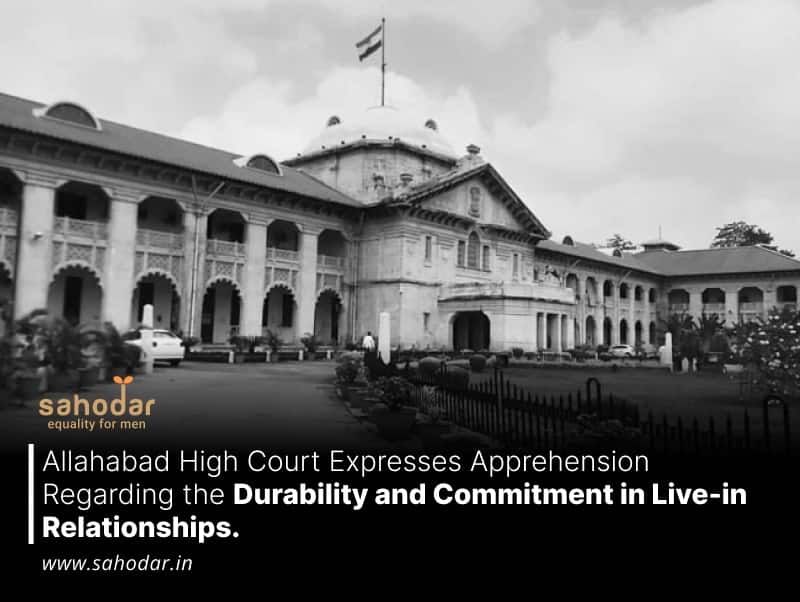In a recent pronouncement, the Allahabad High Court made the observation that live-in relationships are predominantly characterized by their transient nature, marked by a dearth of stability and earnest commitment. This observation was rendered in conjunction with the court’s decision to dismiss a petition filed by an interfaith live-in couple who had sought police protection. The judgment was delivered by a panel of Justices, namely, Justices Rahul Chaturvedi and Mohd Azhar Husain Idrisi.
“No doubt that Hon’ble the Apex Court in number of cases, have validated the live-in relationship but in the span of two months in a tender age of 20-22 years, we cannot expect that the couple would be able to give a serious though over their such type of temporary relationship. As mentioned above, it is more of infatuation against (sic) opposite sex without any sincerity. The life is not a bed of roses. It examines every couple on the ground of hard and rough realities. Our experience shows, that such type of relationship often result into timepass, temporary and fragile and as such, we are avoiding to give any protection to the petitioner during the stage of investigation.”
The Court adjudicated a case brought before it by a couple, consisting of a Hindu woman and a Muslim man. Their petition sought the quashing of a First Information Report (FIR) registered against the man, charging him with the offense of kidnapping under Section 366 of the Indian Penal Code. The FIR had been filed at the behest of the woman’s aunt.
In conjunction with their request for the FIR to be quashed, the couple also petitioned for police protection, underlining their intent to maintain their live-in relationship. The legal representative of the woman contended that, given her age exceeding 20 years, she was vested with the legal capacity to make autonomous decisions regarding her future, which included cohabiting with the aforementioned man.
In contrast, opposing counsel argued that the accused individual was already subject to a prior FIR registered under the Uttar Pradesh Gangster Act. It was asserted that the accused had a reputation as a “road-romeo” and a precarious future, with the potential to imperil the woman’s well-being.
After meticulous consideration of the arguments and the pertinent circumstances, the Court articulated its reservations concerning live-in relationships. Nevertheless, it was imperative for the Bench to emphasize that its stance should not be misconstrued as an ultimate adjudication or an endorsement of the couple’s relationship. Furthermore, it should not be construed as a shield against any lawful actions pursued in accordance with prevailing legal standards.
“The Court feels that such type of relationship is more of infatuation than to have stability and sincerity. Unless and until the couple decides to marry and give the name of their relationship or they are sincere towards each other, the Court shuns and avoid to express any opinion in such type of relationship.”
With these observations, the Court dismissed the plea.

